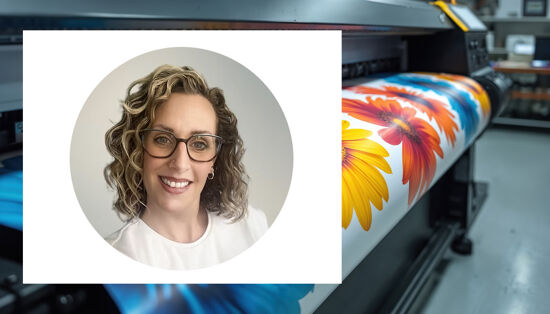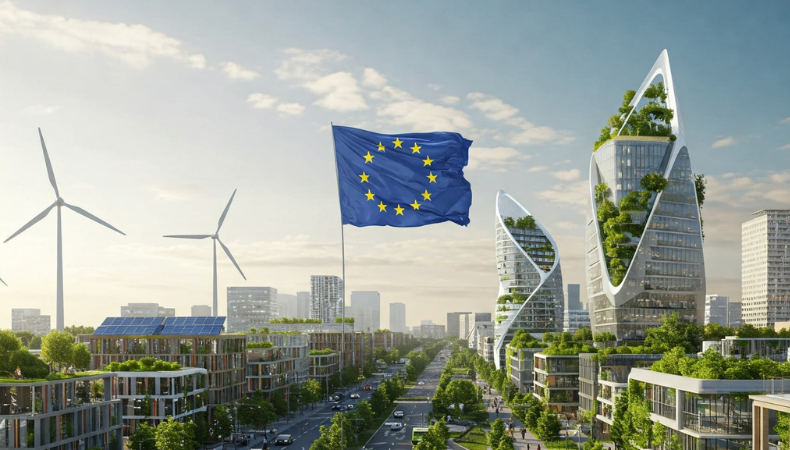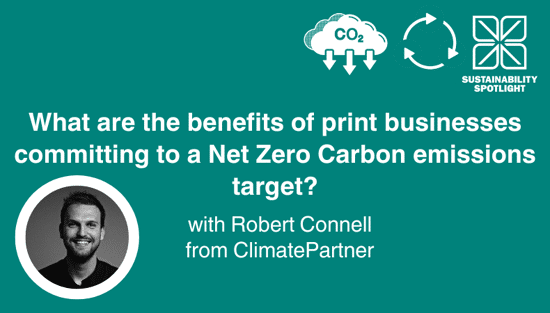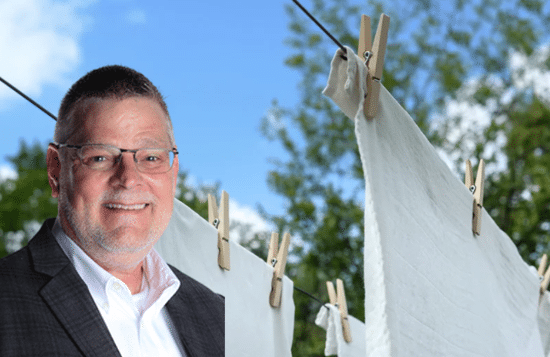Ukranian printing company invests in Flexcel NX Wide

Ukrpol, a Ukranian printing house that focuses on commercial printing and packaging production has a wide array of customers that are in the food, cosmetics and medical sectors. The company recently bought a Miraclon Flexcel NX Wide 4260 flexographic platemaking system. This purchase will help the company attract customers who acknowledge the value of modern flexo for packaging production.
The story of Ukrpol is one not just of survival during times of strife. This Ukrainian printing house has, through judicious technology investments, more than thrived since its founding in 1997. Today Ukrpol has over 23,000m2 of production space and employs almost 600 people at its two factories in Stryi, in the west of Ukraine near to Lviv.
Ukrpro started life as a commercial printer, but has been moving into packaging production for a number of years. The company produces packaging for leading brands in a wide range of sectors, mainly food, pharmaceuticals, cosmetics and household products. Over the years, Ukrpol has become a Ukrainian printing industry leader, with almost 30% of its output is exported. The company has customers in Germany, Belgium, Poland, Sweden, the Czech Republic and the Dominican Republic.
Ukrpol’s latest new kit is Miraclon’s Flexcel NX Wide 4260 flexographic platemaking system. Bringing wide-web flexo platemaking in-house has been part of a wider investment into Ukrpol’s production systems. The Flexcel kit complements a newly installed 670-mm wide press and a 1300-mm press due to come online soon. Ukrpol has set up a completely new dedicated flexo facility at the company’s plant in Stryi.
Packaging production is one of the few, if not the only, print application that is immune to digitisation. Every other form of communications dominated by print, can be replicated online. True the experience isn’t quite the same but the end result generally is. Not so with packaging, so it’s unsurprising that so many commercial printers are upping their packaging production game. And it is why we see so many printers offering their customers a range of production options, especially for short packaging print runs. To support this part of its business Ukrpol has been moving into flexo production for several years, although gravure and offset still accounts for 70% of the company’s production volume. Flexo and digital printing account for 25% and 5% respectively.
Matching the demands of a print application to the available technology is fundamental if you want to ensure production efficiency and get a positive hit to the bottom line. Some applications, such as short run production are better met with digital printing for instance. Over the years as technology improves, the efficiency equations change and modern flexo is increasingly suitable for packaging jobs previously destined for a gravure press.
Market realities also play a role as this transition progresses. Turnaround times are getting tighter, run lengths are coming down and brand owners are increasingly concerned with maximising shelf-time. They are no longer happy with a six week transition time for getting new products to the shelf. Brands also have concerns about the sustainability of the gravure printing process. Modern flexo printing is even more attractive in this context, so Ukrpol is confident that it can capitalise on its Flexcel NX investment. The new kit will help Ukrpol to attract customers who recognise the value of modern flexo for packaging production.
Topics
Recent news

Empowering the Print Community – Insights from Suzi Ward, MD of FESPA UK
In this podcast episode, Debbie McKeegan interviews Suzi Ward, the Managing Director of Fespa UK, discussing the evolution of the association, its role in supporting the print industry, and the importance of community engagement.
.png?width=550)
The European Union is driving massive sustainability change
The EU's ambitious Green Deal, aiming for climate neutrality by 2050, drives significant sustainability changes. Businesses worldwide, especially printers, must adapt to complex EU legislation. Compliance creates challenges but also new opportunities in areas like packaging and signage.

What are the benefits of print businesses committing to a Net Zero Carbon emissions target?
We speak to Robert Connell, Senior Commercial Sustainability Manager at ClimatePartner who who offer solutions along the net zero cycle to support business’s effort in corporate climate action. In this discussion we discuss the importance and the process and benefits of businesses committing to a Net Zero Carbon emissions target.

6 Sustainable Printing Practices Changing the Game in Textile and Apparel Decoration
The textile industry is shifting towards sustainability. Innovations like waterless and digital printing, eco-friendly inks, and recycled materials are reducing waste. AI and automation optimise production, while circular models promote reuse. Consumer demand for transparency drives this change, making sustainable practices essential for future-focused brands.